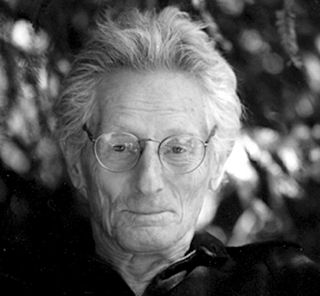A Quote by Vladimir Nabokov
Between the age limits of nine and fourteen there occur maidens who, to certain bewitched travelers, twice or many times older than they, reveal their true nature which is not human, but nymphic (that is, demoniac); and these chosen creatures I propose to designate as nymphets.
Related Quotes
Any attempt to shape the world and modify human personality in order to create a self-chosen pattern of life involves many unknown consequences. Human destiny is bound to remain a gamble, because at some unpredictable time and in some unforeseeable manner nature will strike back. The multiplicity of determinants which affect biological systems limits the power of the experimental method to predict their trends and behavior.
In the province of the mind what one believes to be true, either is true or becomes true within certain limits. These limits are to be found experimentally and experientially. When so found these limits turn out to be further beliefs to be transcended. In the province of the mind there are no limits.
My version of relativism is pluralistic and attributes functions to morality that in combination with human nature place limits on what could count as a true morality. Unlike many other relativists, I do not hold that people are subject to a morality because they all belong to a certain group. That is, I don't hold that being a member of a group makes one's subject to some set of generally accepted norms. What is true is that others around us teach us morality and moral language, so they inevitably influence us.
Body', 'soul', and 'spirit' may designate phenomenal domains which can be detached as themes for definite investigations; within certain limits their ontological indefiniteness may not be important. When, however, we come to the question of man's Being, this is not something we can simply compute by adding together those kinds of Being which body, soul, and spirit respectively possess--kinds of being whose nature has not as yet been determined. And even if we should attempt such an ontological procedure, some idea of the Being of the whole must be presupposed.
Of all the endless variety of phenomena which nature presents to our senses, there is none that fills our minds with greater wonder than that inconceivably complex movement which, in its entirety, we designate as human life; Its mysterious origin is veiled in the forever impenetrable mist of the past, its character is rendered incomprehensible by its infinite intricacy, and its destination is hidden in the unfathomable depths of the future... .
Reason cannot desire for man any condition other than that in which not only every individual enjoys the most absolute, unbounded freedom to develop himself out of himself, in true individuality, but in which physical nature, as well, need receive no other shaping by human hands than that which is given to her voluntarily by each individual, according to the measure of his wants and his inclinations, restricted only by the limits of his energy and his rights.
Regarding the passage on p. 163 of the 'Gleanings': The creatures which Bahá'u'lláh states to be found on every planet cannot be considered to be necessarily similar or different from human beings on this earth. Bahá'u'lláh does not specifically state whether such creatures are like or unlike us. He simply refers to the fact that there are creatures on every planet. It remains for science to discover one day the exact nature of these creatures.
Community, then, is an indispensable term in any discussion of the connection between people and land. A healthy community is a form that includes all the local things that are connected by the larger, ultimately mysterious form of the Creation. In speaking of community, then, we are speaking of a complex connection not only among human beings or between humans and their homeland but also between human economy and nature, between forest or prairie and field or orchard, and between troublesome creatures and pleasant ones. All neighbors are included.






































